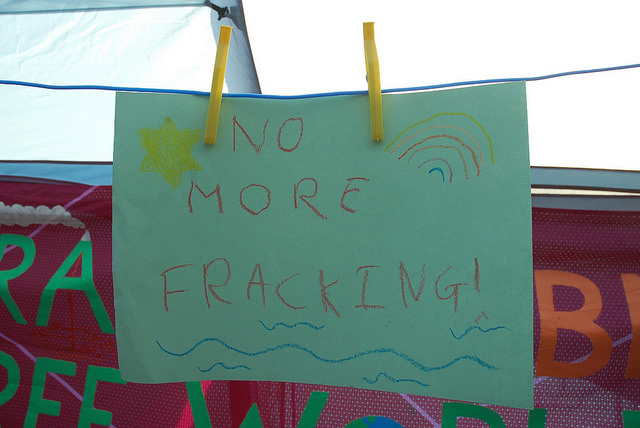I’d probably be wiser to keep my mouth shut about this since I consider it a non-issue gone beserk that will die a natural death soon enough, but let’s do our best to have a quiet talk about fracking.
Since we’ve yet to see a lick of evidence that there’s anything there to frack, I have to believe that this is about something else — a sort of collective psycho-freakout of forces built up over decades in which presumed “pro-development” and “anti-development” forces engage in combat in order to score a few abstract points, like two bad neighbours in a life-long feud.
To the anti-development crowd worried about the environment, I say: relax, it ain’t gonna happen anytime soon, ban or no ban. Worry about more pressing stuff.
To the development crowd, prominent members of which have been declaring their embarrassment at the fact that Nova Scotia has banned fracking while taking fracked gas from elsewhere, I say: chill, there are worse things to be embarrassed about regarding natural gas.
How about being embarrassed at the fact that our offshore gas has been mostly whipping right past us since it came onshore to feed New England and even New Brunswick, while we dawdled?
How about being downright abashed at the fact that when we stopped dawdling, we handed a sweetheart deal to one company, AltaGas, with a guaranteed high return? It then dragged its feet while cherry-picking the good-paying projects, as the deal cut off towns and co-ops that wanted to distribute their own gas.
Or, in the words of urban economist Michael Poulton: “We are stuck with a franchisee who does not have to provide a development plan, does not have to serve hubs to other distributors, does not have to be a common carrier to other people’s gas, and does not have to open its accounts to show what revenue it delivers to HQ in Calgary.”
If you’re looking for mortifying proof of our backwardness, that would surely be better evidence than having joined New York, Vermont, several other states and innumerable towns and counties in the U.S. (a Pew Research poll shows more than half the U.S, population now against fracking), plus Quebec, France and others in a ban, no matter how politically counter-productive and inept it was.
Here as elsewhere, the shouting match between development and environment obscures the economics. Consider Britain, which has a screaming match like ours (with the difference that it actually has proven shale gas and oil reserves).
Tim Morgan, a major economic voice there, writing in the London Telegraph recently, says “rather oddly, hardly anyone seems to have asked the one question which is surely fundamental: does shale development make economic sense? My conclusion is that it does not.”
The debate is driven by comparisons with the U.S., he says, where, as is now becoming clear, operators are on a “drilling treadmill” where “net cash flow has been negative year after year, and some of the industry’s biggest names have already walked away” — that is, even before the price of energy dropped, thanks largely to fracking itself creating a high-cost bubble which the Saudis and others are now undercutting.
If we were actually fracking in Nova Scotia, operators would likely be shutting down right now.
As for much-needed economic analysis on our own situation, go to the Canadian Centre for Policy Alternatives website (under “commentary”) where economist Michael Bradfield, a member of the Wheeler commission on fracking, has crunched the numbers, concluding that even if the most optimistic projections of the commission were true, the benefits to the public purse would actually be minor, raising such issues as the fact that royalties only kick in after two years of production, at which point a fracked well has typically already produced most of its gas.
Further, the business of Nova Scotia as the favourite whipping boy of tar sands propaganda is caught up in the story.
Both the Wheeler commission, by unwisely putting forth overblown industry-fed scenarios which are repeated as fact, and the government’s clumsy ban, needlessly stirred this up.
The story is, of course, that we’re “dependent,” and by not fracking, we’re saying that we want to stay that way.
Bradfield has some useful numbers there, too. We’ll send $4.1 billion to Ottawa in taxes in the most recent fiscal year and get $3.3 billion back (35 per cent of our budget), of which $1.7 billion (19 per cent of the budget) will be actual equalization.
The rest will be transfers that all provinces get, such as for health, infrastructure, etc.
In other words, we’re not as dependent as is made out, and fracking would be only a small part of the answer even if it happened.
And it’s not happening. So let’s move on, please.
Ralph Surette is a freelance journalist in Yarmouth County. This column was first published in the Chronicle Herald.
Photo: Vertigogen/flickr



